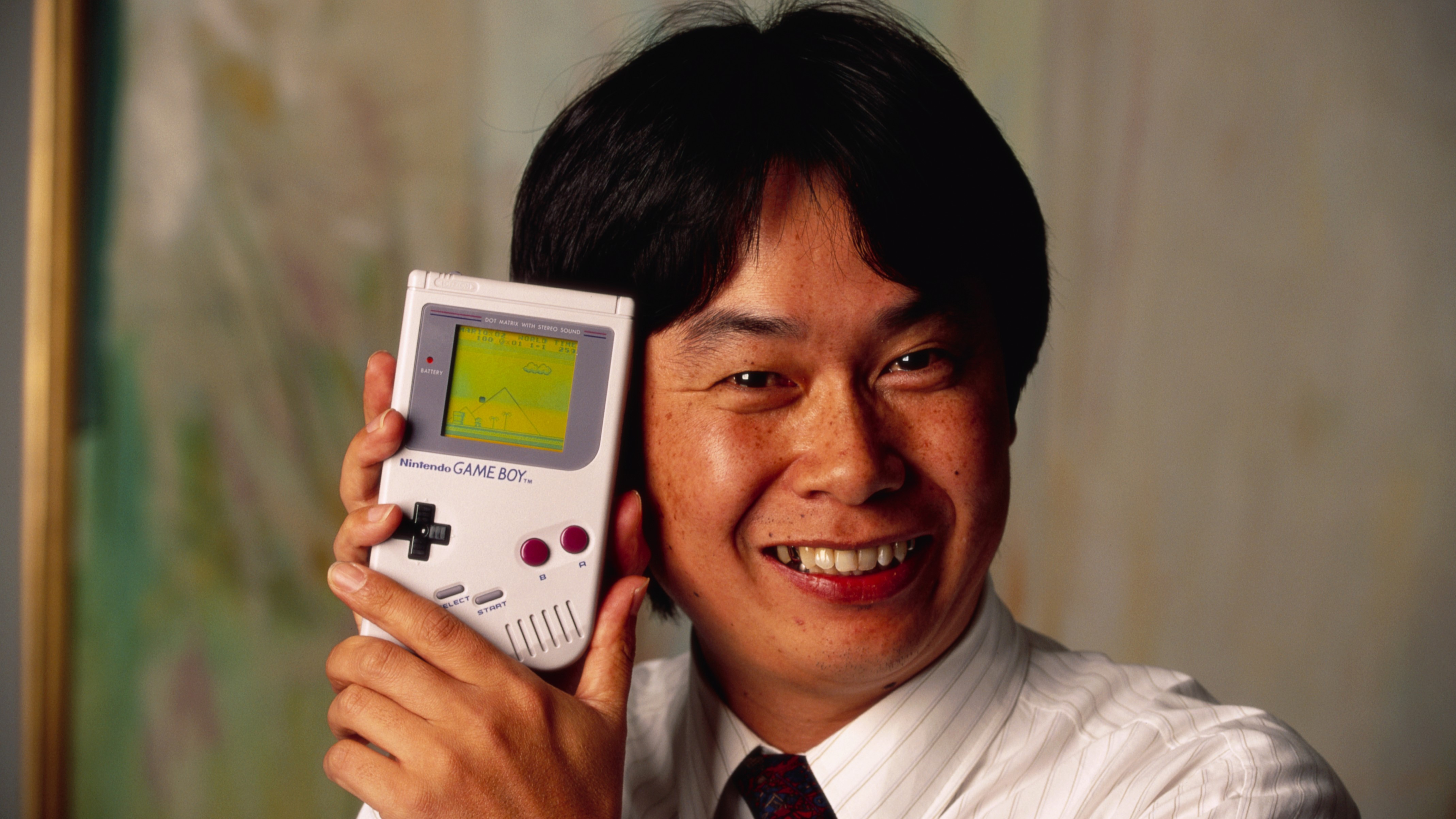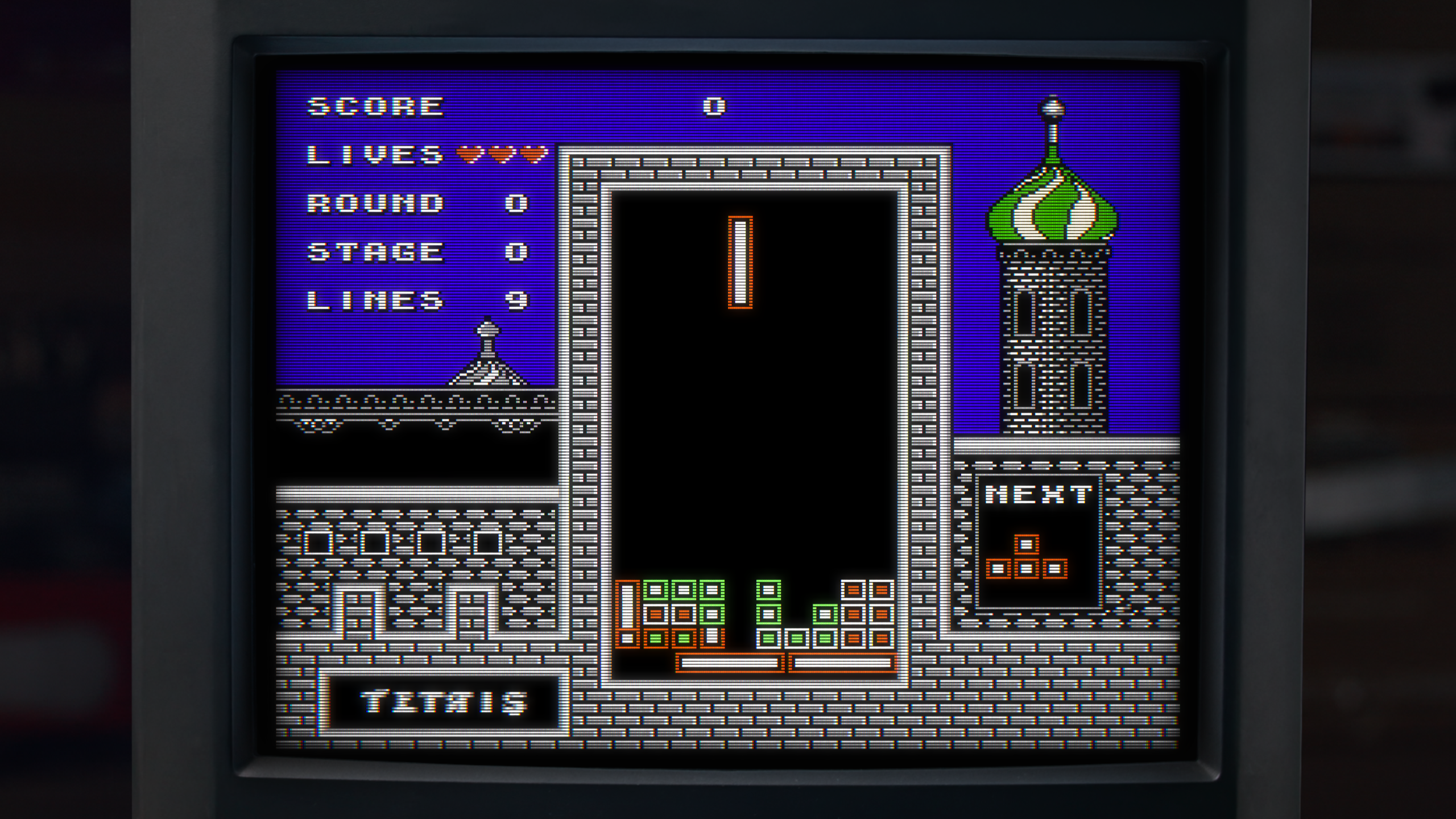Nintendo's fearsome CEO once called Shigeru Miyamoto in to ask if Tetris was any good, who replied 'your secretaries and accountants are all playing at lunchtime and after work, and that's never happened before'
Knew what to look for.

Henk Rogers' memoir The Perfect Game—Tetris: From Russia With Love was published this week, the story of one man's rather incredible journey through the games industry and, in particular, his involvement with Tetris. Outside of the game's creator, Alexey Pajitnov, Rogers is by far the most important figure in bringing the game as we know it to the world.
And the key early partner for Rogers was Nintendo, a company that he'd been fortunate enough to be on good terms with. Rogers had moved to Japan and was unique among foreign developers at the time in being able to build a relationship with Hiroshi Yamauchi (which was largely down to the fact they both played Go).
Yamauchi is an absolutely central figure in why Nintendo became the Nintendo we now know. He took over what was a playing card company in 1949, and would be the president of Nintendo until his retirement in 2002 (he didn't do a bad job hand-picking his successor either: Satoru Iwata). Yamauchi ruled Nintendo with an iron fist and was known for his abrupt and sometimes brutal business practices, but he was also insistent on the importance of innovation and quality in Nintendo's products.
Rogers had a business relationship with Yamauchi, and had previously proven to Nintendo's President that he was as good as his word. So when he ran into problems getting orders for a version of Tetris on the NES, he asked for help, and got one of the great Shigeru Miyamoto cameos.
"I went to visit Mr Yamauchi because my understanding was that I needed to have 200,000 minimum order [of cartridges] for the game to become a hit," Rogers tells PCG. "So I go to Mr Yamauchi and said, 'Mr Yamauchi, I think I have one of the greatest games of all time. And my sales guys have only managed to get 40,000 units as an initial order. I don't know what to do. Am I doing wrong? What can I do to fix this?'"
"And then Mr Yamauchi calls in Shigeru Miyamoto to find out if the game is actually a good game. And Miyamoto says 'yes'. And Yamauchi said, 'how do you know?' And Miyamoto says, 'well, because your secretaries and accountants are all playing at lunchtime and after work, and that's never happened before.'
"So then Yamauchi calls in [Hiroshi] Imanishi. Imanishi was number two, the Managing Director. Yamauchi said 'Imanishi, I want you to put the Nintendo Seal of Approval on this game. And also I want you to call every distributor and tell them to order more.' I'm thinking like, whoa, that's some serious action going on."
The biggest gaming news, reviews and hardware deals
Keep up to date with the most important stories and the best deals, as picked by the PC Gamer team.

No-one would dare go against Yamauchi's instructions. But Imanishi did ask Rogers for a favour. "Imanishi called me the next day and said 'please don't make me put that Seal of Approval on it because I'll have to create a whole team of people that does nothing but check to see if games coming in can have Nintendo Seal of Approval on them. But I will call all the distributors and order more.' And he did."
Amusingly enough, Yamauchi would soon come to realise just how good Tetris was and try to make Rogers arrange a deal for Nintendo to buy the game outright. Rogers refused, but then got a little taste of Yamauchi's other side. This came up when I mentioned Gunpei Yokoi, the creator of Game Boy among many other things.
"I met Gunpei Yokoi a number of times," says Rogers. "And ultimately we were good friends because I helped him launch Game Boy and he helped me launch Tetris. So that was a mutual thing. But I was a little bit miffed when Nintendo tried to come up with a game to beat Tetris."
Rogers is here referring to Dr Mario, which would release on NES and Game Boy in 1990, and was produced by Yokoi.
"That instruction must have come because Mr. Yamauchi tried to buy Tetris from me," recalls Rogers. "I said no, like 'OK I'll trade Mario for Tetris'. Meaning sort of over my dead body. And then Mr Yamauchi gave instructions [to his team], 'you go make a game that's as good as Tetris' and, you know, blah blah blah. Dr Mario is sort of a blatant attempt at making another Tetris. And it's not as good."
Rogers goes into detail on some of the problems he sees in Dr Mario, but I'd say it's self-evident to anyone who's played both games. Dr Mario is a perfectly decent puzzle game: but Tetris is the perfect game.
"Anyway, I was pissed off," laughs Rogers. "And I can't really blame Yokoi for that! I mean I don't know whether it's under him or under another team, whatever, but yeah: that's business."
When you're dealing with Hiroshi Yamauchi, it certainly is. Look out for more from our interview with Rogers this week, which is full of fascinating insight into the early days of one of the world's greatest games: not least the fact that the original version was "a survival game."

Rich is a games journalist with 15 years' experience, beginning his career on Edge magazine before working for a wide range of outlets, including Ars Technica, Eurogamer, GamesRadar+, Gamespot, the Guardian, IGN, the New Statesman, Polygon, and Vice. He was the editor of Kotaku UK, the UK arm of Kotaku, for three years before joining PC Gamer. He is the author of a Brief History of Video Games, a full history of the medium, which the Midwest Book Review described as "[a] must-read for serious minded game historians and curious video game connoisseurs alike."
You must confirm your public display name before commenting
Please logout and then login again, you will then be prompted to enter your display name.

